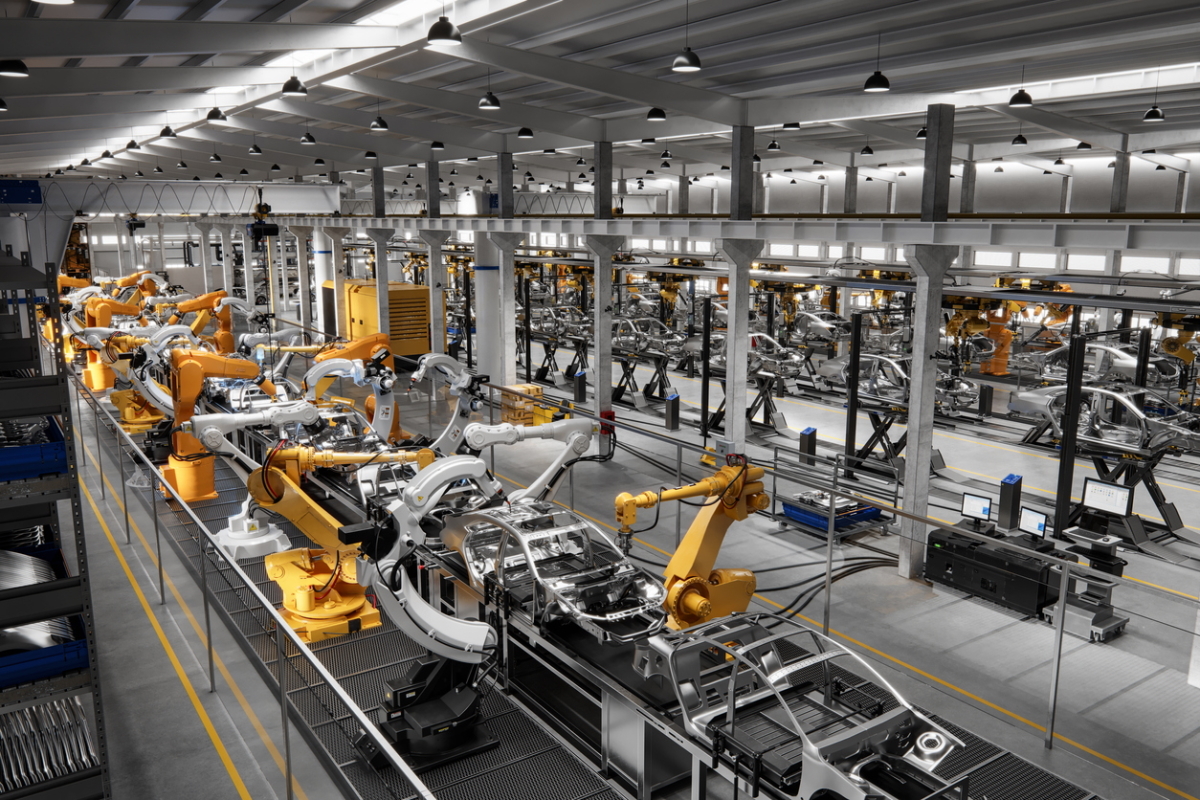Agile manufacturing in a highly volatile world

Maggie Slowik at IFS makes the case for a new and agile approach to manufacturing
The global manufacturing supply chain has endured a huge amount of disruption since the end of the pandemic. Just as demand ramped up in the post-COVID recovery, different pressures injected a new level of unpredictability into the global trading system.
Agricultural exports have suffered severe disruption just as energy prices have rocketed and China continues to sporadically lock down ports in its zero-COVID policy. Unpredictable events have also taken their toll, from the Suez Canal blockage to the South Korean drought that affected production of silicon wafers in water-intensive process.
It is unlikely that the ongoing political friction or high inflation will be resolved anytime soon, or that the effects of climate change will diminish quickly. As a result of these disruptions, many manufacturing and supply chain businesses have been forced into costly short-term measures to survive.
New research commissioned by IFS, polling over 1,450 senior decision-makers at large enterprises across France, Germany, Nordics, USA, the UK and the UAE, found that two-thirds (66%) of large enterprises globally say they are keeping more stock on hand now compared to the pre-pandemic period, with nearly one in five in total (18%) retaining ‘significantly more’ stock. That, in itself, has ramped up costs and wastage.
Further highlighting the impact of supply chain disruption, seven out of ten respondents polled for the survey (70%) said they had increased the number of suppliers of materials/products they use in response to recent supply chain issues. Moreover, nearly three-quarters (72%) of the survey sample claimed to have grown the proportion of materials/products they source from domestic suppliers as a result of these issues.
Together, these factors are creating tidal wave of challenges for businesses at a time when increased regulatory burdens (highlighted by 15% as a primary contributor to their current business disruption) and the need to tap into the many benefits of the circular economy is already making supply chain management even more complex.
While it is hugely positive that 93% of respondents said their organisation was either embracing the circular economy today or planning to in the future, such a change could become a major source of disruption for many large enterprises - especially if their equipment and processes are not set up to deal with waste reduction and the re-use and recycling of materials.
Adding to the challenges, the survey reveals many large businesses are suffering from talent shortages. 65% of respondents say their organisations are finding it challenging to fill open roles, (with a lack of qualified applicants and skilled talent being the most prevalent reasons why), and 39% think disruption relating skills shortages within their organisation will last beyond the end of 2022.
Finding a way forward
All the above disruption places a high priority for manufacturers and their suppliers on supply chain agility and the ability to predict potential weak-points and run alternative scenarios. While they cope with these exigencies, manufacturers must also adapt to the way customer demand has changed during the pandemic, accelerating the shift to online commerce with a new emphasis on traceability and sustainability.
Given the fact that price volatility is now escalating ever further and skills continuing in short supply, the need is increasingly urgent to find solutions that help them to manage this disruption and address the supply chain complexities we are dealing with today. The good news is that high levels of agility are now within reach of many manufacturing organisations and their ecosystems of suppliers and customers.
Why technology is crucial but not the be all and end all
To achieve their goals, especially when skills are in short supply, they will ultimately need to invest in technology that delivers the agility and fast time to insight that they need to better forecast demand. But it is also important to stress here that the approach should never be a technology-first one.
Technology is key – but it needs to be delivered as part of a broader methodology. It’s paramount that companies first look at the business problem they’re trying to solve and visualize the role they want to play in the market. In other words, rather than taking a technology-first stance, the focus needs to be on transforming the business itself.
It is vital too that businesses take their people with them on the journey to the latest digital technologies. Although IT plays an important role in driving the digital transformation strategy, implementing and adapting to the big changes that come as a result, falls on the employees. When people question their value, perhaps fear that their jobs are at risk, or don’t understand the benefits that new technologies can bring, IT leaders will feel the pushback. To deliver on innovation, the business needs to focus on good change management, engaging with users and listening to and acting on their challenges, feedback and suggestions.
Even at the most unpredictable of times, organisations now have the digital supply chain tools to overcome short-term gyrations in the supply chain while adapting to longer-term trends. The good news is that if it is delivered in the right way within the context we have described, the technology is increasingly there to help manufacturers and their suppliers overcome disruption and achieve operational agility.
Advanced enterprise resource planning (ERP) solutions give complete visibility to every link in the supply chain with comprehensive functionality that embraces active management of demand planning, sales, inventory-replenishment, shipping, procurement and suppliers and contracts.
Solutions now integrate and embed intelligent approaches in every facet of manufacturing processes, running through the complete cycle for maximum agility and profitability in a highly volatile world.
Maggie Slowik is Global Industry Director, Manufacturing at IFS
Main image courtesy of iStockPhoto.com

Business Reporter Team
Most Viewed
Winston House, 3rd Floor, Units 306-309, 2-4 Dollis Park, London, N3 1HF
23-29 Hendon Lane, London, N3 1RT
020 8349 4363
© 2025, Lyonsdown Limited. Business Reporter® is a registered trademark of Lyonsdown Ltd. VAT registration number: 830519543





